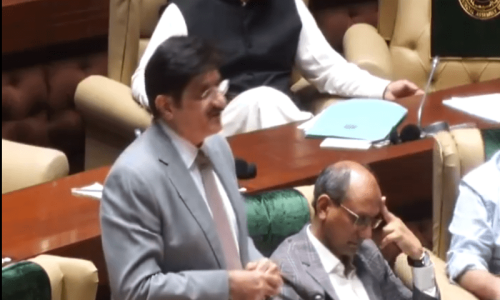
PROF Shamim Hanafi, one of today’s most celebrated critics and researchers of Urdu, will turn 80 this November. Anjuman Taraqqi-e-Urdu Hind’s quarterly journal Urdu adab has published in its latest issue a special section on Shamim Hanafi to pay tribute on his 80th birthday.
Shamim Hanafi shot to fame in 1978 with the publication of his book Jadeediyet ki falsafiyana asaas (the philosophic basis of modernism), consisting of four chapters of his dissertation, on which Aligarh Muslim University (AMU) had conferred a DLitt on him. Not that he was little-known before the publication of this book, but the book triggered a chain reaction and the ensuing debates sucked many critics and writers in. Its sequel, Nai sheari rivayet (new poetic tradition), which contained the remaining chapters, too made ripples, making the author a much talked-about personality. He was indeed already well-known in literary and artistic circles for his profound interest in poetry, painting, pottery, drama, performing arts and his hugely vast reading on these topics. But it was his critical acumen that his two books reflected in its true, bright colours that made him shine and sent some of his contemporaries scrambling for a befitting reply.
Anwer Siddiqi’s article included in the issue sheds some light on the background of the Shamim Hanafi’s point of view and what happened in the wake of Shamim Hanafi’s rise on the literary horizon. According to Siddiqi, analysing leftist realism Shamim Hanafi had pointed out in these books that progressive thought suffered from certain contradictions and the progressive writers’ point of view was often non-literary. Hanafi had written that progressive writers and critics of Urdu were not fully aware of Karl Marx’s literary views neither were they aware what arguments and changes had taken place among the eastern and western progressives in the post-Marx era. The latter-day leftists had raised many questions and had toned down the early leftist extremist views in the light of aesthetic and literary criticism. He also wrote that the revolutionary elements found in avant-garde in European literary movements, considered responsible for the onset of modernism, too were much inspired by Marxism. In other words, modernism was not devoid of Marxist elements.
Some writers of Urdu believed that modernism was a reactionary trend against Marxism and hence many decided to oppose modernism. But, according to Siddiqi, their responses and reviews against Shamim Hanafi’s works could make least impact as Hanafi knew that modernism was a trend with complex and cross-current ideas. On the other hand, he adds, Hanafi refused to accept the tendency of the Modernists who insist on creating ‘pure literature’ or ‘pure poetry’, which implied that they believed in ‘art for the sake of art’ and scoffed at any piece
of literature that betrayed any political, moral or economic idea. What has caused a reaction among some critics against Shamim Hanafi, writes Siddiqi, is that Hanafi has an inclusive and not exclusive idea of modernism.
It is generally believed that Prof Muhammad Shamim Hanafi was born on May 17, 1939. But his correct date of birth is November 17, 1938. Born in Sultanpur, UP (now famous because of the poet Majrooh Sulanpuri), Shamim Hanafi was fortunate in the sense that in those days many poets and writers of Urdu and Persian had gathered in Sultanpur and some of them had befriended Hanafi’s father Sheikh Muhammad Yaseen, a prominent lawyer. Hanafi had developed an early fascination for the poetry of Allama Iqbal, Josh Malihabadi and especially Firaq Gorakhpuri. Firaq later became his mentor when Hanafi was at Allahabad University, though his illustrious teachers at Allahabad University, such as Ehtesham Hussain and Ejaz Hussain, and eminent colleagues at AMU, such as Aal-e-Ahmed Suroor and Usloob Ahmed Ansari, must have influenced him to some extent.
Having passed his MA in history in 1960, Hanafi did his MA in Urdu in 1962 and D.Phil in 1967 from Allahabad University. He did his D.Litt from AMU in 1976. He served at AMU’s faculty for about seven years before joining Jamia Millia Islamia, Delhi, where he ultimately rose to the position of Professor Emeritus. Shamim Hanafi is a critic,
poet, playwright and research scholar and has over 60 books to his credit.
Another special section included in the journal is on Dr Aslam Pervez, the academic and the former editor of Urdu adab. Aslam Pervez died on September 6, 2017. The issue, edited by Siddiq-ur-Rahman Qidvai and Ather Farouqui, includes many other informative and absorbing articles.
Published in Dawn, January 22nd, 2018













































Dear visitor, the comments section is undergoing an overhaul and will return soon.